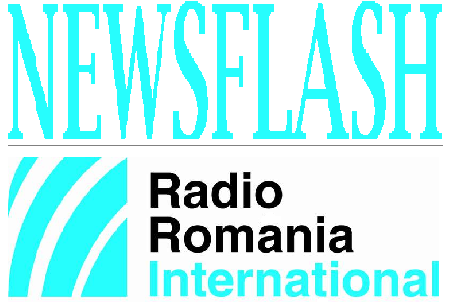May 16 2014
A look at some of the headlines in Romania today

România Internațional, 16.05.2014, 12:00
Romania is considering the possibility of a permanent NATO presence in the country, said prime minister Victor Ponta after talks in Bucharest with NATO secretary general Anders Fogh Rasmussen. Ponta assured the NATO official that Romania would increase its defence budget to reach 2% of the GDP in 2017, as required of all NATO member states. Mr Rasmussen hailed the decision of the Romanian authorities. Today, he also had talks with defence minister Mircea Dusa and is due to meet president Traian Basescu and foreign minister Titus Corlatean.
Standard& Poor’s has improved Romania’s rating from BB plus to BBB minus as a result of economic growth and fiscal discipline. BBB minus is considered the lowest investment grade. Romania’s rating is thus similar to that of Russia, Brazil and Spain. According to Eurostat, with 3.8%, Romania recorded the highest economic growth rate in the European Union in the first quarter of the year, seeing the most significant annual growth rate in the EU for the second consecutive quarter.
The reduction of social security contributions by 5% will dominate Romania’s talks with the International Monetary Fund, the World Bank and the European Commission in early June, said the Romanian finance minister Ioana Petrescu. Another measure being considered is the amendment of the Fiscal Code and the Code of Fiscal Procedure, which will be submitted for public debate this summer. According to the finance minister, the GDP increase by 3.8% also allows for measures to support the business environment. In the last four years, Bucharest has finalised two agreements with the International Monetary Fund and the World Bank worth 20 and 5 billion euros, respectively. Another agreement, of a precautionary type and worth 4 billion euros, is currently in place.
Ukraine’s foreign minister Andriy Deshchytsia has denounced Russian plans to schedule military exercises to coincide with Ukrainian presidential elections on the 25th of May. According to the Moscow authorities, Russian troops have already been deployed on the Russian-Ukrainian border near Lugansk and have received peace keeping training. Lugansk and Donetsk have proclaimed their independence in two referendums which have not been recognised by Kiev and the international community. The West has threatened to impose new sanctions on Russia if it interferes with the early presidential elections in Ukraine.
The British publication The Economist has written an ironic article about the official figures indicating a drop in the number of Romanian and Bulgarian nationals working in the UK despite alarmist statements made by British politicians and the media. The publication notes that after the elimination of all labour restrictions on the 31st of December 2013, Romanians and Bulgarians did not arrive in large numbers in Britain. On the contrary, writes The Economist, citing official statistics published this week, the number of Romanians and Bulgarians working in the UK dropped between December 2013 and March 2014 by 4,000 to reach 140,000.
Talks are being held in Bucharest between Postal Service trade unions and the management. Postal workers, who have started a series of protests, demand higher pay, better work conditions and the resignation of the current management, which they say is incompetent. The managers of the Postal Service, whose privatisation failed last year, say it was necessary to cut the number of employees. By late March, the Postal Service had accumulated debts to the state budget of around 45 million euros.
Over 30 different museums and cultural and education organisations in Bucharest stay open until late into the night on Saturday for the Long Night of Museums. Other museums across the country have also joined the programme. Visitors will be able to choose from a wide range of exhibitions, concerts, performances, video projections and installations, as well as interactive workshops. The Long Night of Museums is celebrated every year in almost 3,000 museums in Europe.




























